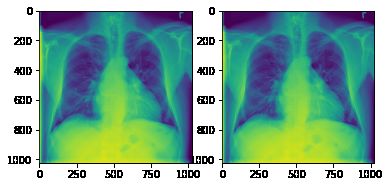- YOLOV10的tensorrt C++部署
dddccc1234
YOLO
根据博客进行python版本安装YOLOv10最全使用教程(含ONNX和TensorRT推理)-CSDN博客并将pt转为onnx:yoloexportmodel=yolov10s.ptformat=onnxopset=13simplify然后采用:https://github.com/hamdiboukamcha/yolov10-tensorrt.git进行c++编译配置好cuda11.7tens
- 华为OD机考2025B卷 - 特殊的加密算法(Java & Python& JS & C++ & C )
算法大师
最新华为OD机试真题华为OD机试真题(Java/JS/Py/C)华为odjavapython华为OD机考2025B卷javascriptc++
最新华为OD机试真题目录:点击查看目录华为OD面试真题精选:点击立即查看2025华为od机试2025B卷-华为机考OD2025年B卷题目描述有一种特殊的加密算法,明文为一段数字串,经过密码本查找转换,生成另一段密文数字串。规则如下:明文为一段数字串由0~9组成密码本为数字0~9组成的二维数组需要按明文串的数字顺序在密码本里找到同样的数字串,密码本里的数字串是由相邻的单元格数字组成,上下和左右是相邻
- 华为OD机考2025B卷 - 查找接口成功率最优时间段(Java & Python& JS & C++ & C )
算法大师
最新华为OD机试真题华为OD机试真题(Java/JS/Py/C)华为odjavapythonjavascriptc++
最新华为OD机试真题目录:点击查看目录华为OD面试真题精选:点击立即查看2025华为od机试2025B卷-华为机考OD2025年B卷题目描述服务之间交换的接口成功率作为服务调用关键质量特性,某个时间段内的接口失败率使用一个数组表示,数组中每个元素都是单位时间内失败率数值,数组中的数值为0~100的整数,给定一个数值(minAverageLost)表示某个时间段内平均失败率容忍值,即平均失败率小于等
- 第3关:Numpy数组的切片与索引
-阿呆-
#numpy初体验python
相关知识一维Numpy数组的切片操作与Python列表的切片一样。下面首先来定义数字012直到8的数组,然后通过指定下标3到7来选择数组的部分元素,这实际上就是提取数组中值为3到6的元素。In:importnumpyasnpIn:a=np.arange(9)In:a[3:7]Out:array([3,4,5,6])同时用下标选择元素,下标范围从0到7,并且下标每次递增2,如下所示:In:a[:7:
- 华为OD机考2025B卷 - 停车费用统计 (Java & Python& JS & C++ & C )
算法大师
最新华为OD机试真题华为OD机试真题(Java/JS/Py/C)华为odjavapython华为OD机考2025B卷javascriptc++
最新华为OD机试真题目录:点击查看目录华为OD面试真题精选:点击立即查看2025华为od机试2025B卷-华为机考OD2025年B卷题目描述停车场统计当日总收费,包月的车不统计,不包月的车半个小时收一块钱,不满半小时不收钱,如果超过半小时,零头不满半小时按半小时算,每天11:30-13:30时间段不收钱,如果一辆车停车时间超过8小时后不收费(网友回忆,数值不一定为8,正式机考的时候注意一下)。输入
- Python 音乐爬虫实战:从网页抓包到歌曲下载
维他奶糖61
python爬虫开发语言
在数字音乐的世界里,通过编程的方式获取自己喜欢的音乐,是一件既有趣又充满挑战的事情。今天,我们就用Python来打造一个简单的音乐爬虫,实现从网页抓包分析,到最终下载歌曲的全过程。一、代码概览流程先来看一下完整的Python代码:importos#抓包过滤媒体#id#EltfAyJRBlZeEF1aUCQFAFhfFF8NUnheUVhfF11XUyQaVldTR19NVndTVVlSQ1hfVw
- 智联招聘爬虫
维他奶糖61
爬虫python开发语言数据挖掘
使用Python和Selenium进行招聘信息爬取在当今数字化时代,数据已成为企业决策的重要依据。对于人力资源部门或求职者而言,获取最新的招聘信息至关重要。然而,手动浏览和收集招聘信息不仅耗时费力,而且效率低下。为了解决这个问题,我们可以使用Python和Selenium库来自动化这一过程,实现从招聘网站上批量爬取招聘信息。准备工作在开始之前,你需要确保已经安装了以下库:Python(建议版本3.
- Python 图片爬虫实战:从代码解析到应用技巧
维他奶糖61
python爬虫开发语言
在数字时代,图片资源丰富多样,通过爬虫技术批量获取心仪的图片成为不少人的需求。本文将以爬取彼岸桌面壁纸网4K美女壁纸为例,深入解析Python图片爬虫代码,分享实用技巧,带你轻松掌握图片爬虫技术。一、爬虫实现思路爬虫的核心是模拟浏览器访问网页,解析页面内容,提取所需信息。本次爬虫的流程如下:构建目标网页URL列表,循环访问各页面;发送HTTP请求获取页面内容,解析HTML文档;定位图片元素,提取图
- 《Python 实现 B 站视频信息爬虫:从批量获取到 CSV 保存》
维他奶糖61
python音视频爬虫
B站视频信息爬虫实战:用Python批量获取B站视频数据引言在数据分析和内容研究场景中,获取B站视频的标题、播放量、作者等信息是常见需求。本文将介绍如何使用Python编写一个B站视频爬虫,通过DrissionPage库实现自动化数据采集,并保存为CSV格式。相比传统Selenium,DrissionPage的API更简洁,适合快速开发爬虫脚本。技术栈与环境准备核心库:DrissionPage:基
- Java 多线程并发编程面试笔录一览
weixin_34318272
面试pythonjava
2019独角兽企业重金招聘Python工程师标准>>>知识体系图:1、线程是什么?线程是进程中独立运行的子任务。2、创建线程的方式方式一:将类声明为Thread的子类。该子类应重写Thread类的run方法方式二:声明实现Runnable接口的类。该类然后实现run方法推荐方式二,因为接口方式比继承方式更灵活,也减少程序间的耦合。3、获取当前线程信息?Thread.currentThread()4
- python为指定目录下的文件名批量加前缀
jghhh01
pythonjava前端
功能描述:批量重命名指定目录下的文件,文件名加前缀,默认格式为“目录名_原文件名”。代码importargparseimportosimportsysimportloggingdefgen_args():"""说明-----解析命令行参数"""parser=argparse.ArgumentParser(prog="批量文件重命名工具",description="批量重命名目录中的文件名,新文件名
- 学而思编程周赛语言普及奠基组 | 2025年春第15周T1 新二进制
热爱编程的通信人
算法c++
欢迎大家订阅我的专栏:算法题解:C++与Python实现!本专栏旨在帮助大家从基础到进阶,逐步提升编程能力,助力信息学竞赛备战!专栏特色1.经典算法练习:根据信息学竞赛大纲,精心挑选经典算法题目,提供清晰的代码实现与详细指导,帮助您夯实算法基础。2.系统化学习路径:按照算法类别和难度分级,从基础到进阶,循序渐进,帮助您全面提升编程能力与算法思维。适合人群:准备参加蓝桥杯、GESP、CSP-J、CS
- 学而思编程周赛语言普及奠基组 | 2025年春第15周T2 散步
热爱编程的通信人
算法c++
欢迎大家订阅我的专栏:算法题解:C++与Python实现!本专栏旨在帮助大家从基础到进阶,逐步提升编程能力,助力信息学竞赛备战!专栏特色1.经典算法练习:根据信息学竞赛大纲,精心挑选经典算法题目,提供清晰的代码实现与详细指导,帮助您夯实算法基础。2.系统化学习路径:按照算法类别和难度分级,从基础到进阶,循序渐进,帮助您全面提升编程能力与算法思维。适合人群:准备参加蓝桥杯、GESP、CSP-J、CS
- Python商务数据分析——Matplotlib 数据可视化学习笔记
爱吃代码的小皇冠
pythonnumpymatplotlibpandas学习笔记数据分析
一、Matplotlib基础认知1.1库功能与定位核心作用:将数据可视化展示,提升数据直观性与说服力应用场景:绘制折线图、饼图、柱状图等2D/3D图表双接口模式:MATLAB风格:通过pyplot函数快速绘图(自动管理图形对象)面向对象:显式创建Figure和Axes对象(适合复杂绘图)1.2核心对象架构容器类:图(Figure)、坐标系(Axes)、坐标轴(Axis)、刻度(Tick)基础类:线
- Python爬虫:Requests与Beautiful Soup库详解
Pu_Nine_9
Python爬虫的学习python爬虫requestsbeautifulsoup
前言在当今数据驱动的时代,网络爬虫成为了获取网络信息的重要工具。Python作为最流行的爬虫语言之一,拥有丰富的库支持。今天我们就来介绍两个最基础也最强大的爬虫库:Requests和BeautifulSoup,并补充关于lxml解析器和RequestsSession的内容。一、Requests库:让HTTP请求变得简单Requests是一个优雅而简单的HTTP库,它让发送HTTP请求变得非常简单,
- centos 7+hadoop 2.7.3
mozhw
c/c++linu/unixjava
安装JDK版本:jdk-8u131-linux-x64.tar.gz需要先删除系统自带的openjdk先查找java再移除[hadoop@localhost~]$rpm-qa|grepjavajava-1.7.0-openjdk-1.7.0.111-2.6.7.8.el7.x86_64python-javapackages-3.4.1-11.el7.noarchtzdata-java-2016g-
- Python 数据分析:numpy,抽提,基本索引。听故事学知识点怎么这么容易?
好开心啊没烦恼
numpypython数据分析numpy开发语言数据挖掘人工智能机器学习
目录1示例代码2欢迎纠错3免费爬虫------以下关于Markdown编辑器新的改变功能快捷键合理的创建标题,有助于目录的生成如何改变文本的样式插入链接与图片如何插入一段漂亮的代码片生成一个适合你的列表创建一个表格设定内容居中、居左、居右SmartyPants创建一个自定义列表如何创建一个注脚注释也是必不可少的KaTeX数学公式新的甘特图功能,丰富你的文章UML图表FLowchart流程图导出与导
- Python 数据分析:pandas 的 DataFrame,抽行、抽列、抽行列。df[] / df.loc[] / df.iloc[],位置索引 / 标签索引,切片 / 不切片
好开心啊没烦恼
Python数据分析python数据分析pandas开发语言数据挖掘
目录1预备知识:Series1.1生成1.2抽提(1)单条(2)多条不连(3)多条连1.3取值2正文:DataFrame2.1生成df2.2抽提2.2.1抽列(1)单列df[]df.loc[]df.iloc[](2)多列不连df[]df.loc[]df.iloc[](3)多列连df[]←不存在这种抽提法!df.loc[]df.iloc[]2.2.2抽行(1)单行df[]df.loc[]df.ilo
- Python 数据分析:numpy.transpose() ,转换维度。听故事学知识点怎么这么容易?
好开心啊没烦恼
numpynumpypython开发语言数据分析数据挖掘人工智能机器学习
目录1一维数组2二维数组3三维数组4欢迎纠错5免费爬虫------以下关于Markdown编辑器新的改变功能快捷键合理的创建标题,有助于目录的生成如何改变文本的样式插入链接与图片如何插入一段漂亮的代码片生成一个适合你的列表创建一个表格设定内容居中、居左、居右SmartyPants创建一个自定义列表如何创建一个注脚注释也是必不可少的KaTeX数学公式新的甘特图功能,丰富你的文章UML图表FLowch
- Python 编辑器:Geany,不是内部或外部命令,系统找不到指定路径
目录1找到设置选项2开始设置2.1complie2.2execute3欢迎纠错4免费爬虫------以下关于Markdown编辑器新的改变功能快捷键合理的创建标题,有助于目录的生成如何改变文本的样式插入链接与图片如何插入一段漂亮的代码片生成一个适合你的列表创建一个表格设定内容居中、居左、居右SmartyPants创建一个自定义列表如何创建一个注脚注释也是必不可少的KaTeX数学公式新的甘特图功能,
- 基于django+Spark+大数据+爬虫技术的国漫推荐与可视化平台设计和实现(源码+论文+部署讲解等)
阿勇学长
大数据项目实战案例Java精品毕业设计实例Python数据可视化项目案例大数据djangospark国漫推荐与可视化平台毕业设计Java
博主介绍:✌全网粉丝50W+,csdn特邀作者、博客专家、CSDN新星计划导师、Java领域优质创作者,博客之星、掘金/华为云/阿里云/InfoQ等平台优质作者、专注于Java技术领域和学生毕业项目实战,高校老师/讲师/同行前辈交流✌技术范围:SpringBoot、Vue、SSM、HLMT、Jsp、PHP、Nodejs、Python、爬虫、数据可视化、小程序、安卓app、大数据、物联网、机器学习等
- 【有源码】基于爬虫+python的美食数据分析与可视化flask热门美食推荐系统的设计与实现
Q2643365023
Python大数据python爬虫计算机毕设选题毕业设计源码计算机毕设项目数据分析美食推荐系统
注意:该项目只展示部分功能,如需了解,文末咨询即可。本文目录1.开发环境2系统设计2.1设计背景2.2设计内容3系统展示3.1功能展示视频3.2系统页面4更多推荐5部分功能代码1.开发环境开发语言:Python采用技术:flask、爬虫数据库:MySQL开发环境:PyCharm2系统设计2.1设计背景在现代社会中,人们对美食的兴趣和需求日益增长。互联网和社交媒体的普及使得各种美食信息、评论和推荐变
- 【零基础学AI】 第10讲:线性回归
1989
0基础学AI人工智能线性回归算法python回归numpy开源
本节课你将学到理解线性回归的原理和应用场景掌握最小二乘法的基本思想使用Python构建房价预测模型学会评估回归模型的性能指标开始之前环境要求Python3.8+JupyterNotebook或任何PythonIDE需要安装的包pipinstallscikit-learnpandasmatplotlibseabornnumpy前置知识第9讲:机器学习概述基本的Python和数据处理能力核心概念什么是
- 【零基础学AI】第9讲:机器学习概述
1989
0基础学AI人工智能机器学习pythonnumpydevops开源
本节课你将学到理解什么是机器学习,以及它与传统编程的区别掌握监督学习、无监督学习的基本概念使用scikit-learn完成你的第一个机器学习项目构建一个完整的iris花朵分类器开始之前环境要求Python3.8+JupyterNotebook或任何PythonIDE需要安装的包pipinstallscikit-learnpandasmatplotlibseaborn前置知识基本的Python语法(
- python递归实现乘法_算法-递归
weixin_39817012
python递归实现乘法
我们在前面学习过递归函数,递归函数采用的就是递归算法,前面我们通过最常见的菲波那切数列去学习了递归函数,这一节我们再来详细了解一下递归算法。1.递归算法递归算法(英语:recursionalgorithm)在计算机科学中是指一种通过重复将问题分解为同类的子问题而解决问题的方法。递归式方法可以被用于解决很多的计算机科学问题,因此它是计算机科学中十分重要的一个概念,递归算法有三个特点:1)递归的过程一
- 算法-基础算法-枚举算法(Python)
总裁余(余登武)
算法与数据结构算法leetcode
文章目录前言解题思路题目1两数之和2计数质数前言 枚举算法(EnumerationAlgorithm):也称为穷举算法,指的是按照问题本身的性质,一一列举出该问题所有可能的解,并在逐一列举的过程中,将它们逐一与目标状态进行比较以得出满足问题要求的解。在列举的过程中,既不能遗漏也不能重复。 枚举算法的核心思想是:通过列举问题的所有状态,将它们逐一与目标状态进行比较,从而得到满足条件的解。 由于
- NLP随机插入
Humbunklung
机器学习自然语言处理人工智能pythonnlp
文章目录随机插入示例Python代码示例随机插入随机插入是一种文本数据增强方法,其核心思想是在原句中随机选择若干位置,插入与上下文相关的词语,从而生成新的训练样本。这种方法能够增加句子的多样性,提高模型对不同词序和表达方式的鲁棒性。示例原句:机器学习可以提升数据分析的效率。随机插入后(插入“显著”):机器学习可以显著提升数据分析的效率。Python代码示例下面是一个简单的随机插入实现,假设我们有一
- Python全栈数据工程师养成攻略-全部代码实战详解
国营窝窝乡蛮大人
本文还有配套的精品资源,点击获取简介:本攻略提供全面资源,帮助初学者系统掌握Python全栈数据工程师的核心技能,包括数据处理、分析、数据库管理及Web开发。攻略详细指导如何使用.gitignore保持项目整洁,通过README.md文档深入了解项目内容,以及如何操作data目录中的数据集和codes目录中的Python代码,实现从数据处理到Web应用构建的全流程。学习内容涵盖数据ETL、Pand
- python爬虫登录校验之滑块验证、图形验证码(OCR)
yuwinter
Pythonpython爬虫ocr滑块验证
在爬虫过程中,验证码和滑块验证是常见的反爬措施。针对这些挑战,通常采用OCR识别图形验证码和模拟滑块拖动来处理滑块验证。以下是如何处理这两种类型验证的详细方法。1.图形验证码(OCR)a.使用tesserocr和Pillow处理图形验证码tesserocr是基于TesseractOCR引擎的Python封装,常用来识别简单的图形验证码。如果验证码不太复杂,可以用它来识别文本。步骤:安装依赖:pip
- python + selenium通过滑块验证
weixin_51144854
pythonselenium爬虫opencv
1、介绍使用python进行自动化操作或者爬虫过程中,可能会遇到需要进行验证的情况。本文介绍了两种通过滑块验证的方法:轮廓检测通过OpenCV进行轮廓检测,找到滑块背景中缺口的位置,计算缺口到滑块的距离。模板匹配通过OpenCV分析滑块背景图与滑块的相似度,找到滑块背景图中与滑块最相似的区域就是缺口的位置,然后计算缺口到滑块的距离。2、轮廓检测测试地址:https://accounts.douba
- SQL的各种连接查询
xieke90
UNION ALLUNION外连接内连接JOIN
一、内连接
概念:内连接就是使用比较运算符根据每个表共有的列的值匹配两个表中的行。
内连接(join 或者inner join )
SQL语法:
select * fron
- java编程思想--复用类
百合不是茶
java继承代理组合final类
复用类看着标题都不知道是什么,再加上java编程思想翻译的比价难懂,所以知道现在才看这本软件界的奇书
一:组合语法:就是将对象的引用放到新类中即可
代码:
package com.wj.reuse;
/**
*
* @author Administrator 组
- [开源与生态系统]国产CPU的生态系统
comsci
cpu
计算机要从娃娃抓起...而孩子最喜欢玩游戏....
要让国产CPU在国内市场形成自己的生态系统和产业链,国家和企业就不能够忘记游戏这个非常关键的环节....
投入一些资金和资源,人力和政策,让游
- JVM内存区域划分Eden Space、Survivor Space、Tenured Gen,Perm Gen解释
商人shang
jvm内存
jvm区域总体分两类,heap区和非heap区。heap区又分:Eden Space(伊甸园)、Survivor Space(幸存者区)、Tenured Gen(老年代-养老区)。 非heap区又分:Code Cache(代码缓存区)、Perm Gen(永久代)、Jvm Stack(java虚拟机栈)、Local Method Statck(本地方法栈)。
HotSpot虚拟机GC算法采用分代收
- 页面上调用 QQ
oloz
qq
<A href="tencent://message/?uin=707321921&Site=有事Q我&Menu=yes">
<img style="border:0px;" src=http://wpa.qq.com/pa?p=1:707321921:1></a>
- 一些问题
文强chu
问题
1.eclipse 导出 doc 出现“The Javadoc command does not exist.” javadoc command 选择 jdk/bin/javadoc.exe 2.tomcate 配置 web 项目 .....
SQL:3.mysql * 必须得放前面 否则 select&nbs
- 生活没有安全感
小桔子
生活孤独安全感
圈子好小,身边朋友没几个,交心的更是少之又少。在深圳,除了男朋友,没几个亲密的人。不知不觉男朋友成了唯一的依靠,毫不夸张的说,业余生活的全部。现在感情好,也很幸福的。但是说不准难免人心会变嘛,不发生什么大家都乐融融,发生什么很难处理。我想说如果不幸被分手(无论原因如何),生活难免变化很大,在深圳,我没交心的朋友。明
- php 基础语法
aichenglong
php 基本语法
1 .1 php变量必须以$开头
<?php
$a=” b”;
echo
?>
1 .2 php基本数据库类型 Integer float/double Boolean string
1 .3 复合数据类型 数组array和对象 object
1 .4 特殊数据类型 null 资源类型(resource) $co
- mybatis tools 配置详解
AILIKES
mybatis
MyBatis Generator中文文档
MyBatis Generator中文文档地址:
http://generator.sturgeon.mopaas.com/
该中文文档由于尽可能和原文内容一致,所以有些地方如果不熟悉,看中文版的文档的也会有一定的障碍,所以本章根据该中文文档以及实际应用,使用通俗的语言来讲解详细的配置。
本文使用Markdown进行编辑,但是博客显示效
- 继承与多态的探讨
百合不是茶
JAVA面向对象 继承 对象
继承 extends 多态
继承是面向对象最经常使用的特征之一:继承语法是通过继承发、基类的域和方法 //继承就是从现有的类中生成一个新的类,这个新类拥有现有类的所有extends是使用继承的关键字:
在A类中定义属性和方法;
class A{
//定义属性
int age;
//定义方法
public void go
- JS的undefined与null的实例
bijian1013
JavaScriptJavaScript
<form name="theform" id="theform">
</form>
<script language="javascript">
var a
alert(typeof(b)); //这里提示undefined
if(theform.datas
- TDD实践(一)
bijian1013
java敏捷TDD
一.TDD概述
TDD:测试驱动开发,它的基本思想就是在开发功能代码之前,先编写测试代码。也就是说在明确要开发某个功能后,首先思考如何对这个功能进行测试,并完成测试代码的编写,然后编写相关的代码满足这些测试用例。然后循环进行添加其他功能,直到完全部功能的开发。
- [Maven学习笔记十]Maven Profile与资源文件过滤器
bit1129
maven
什么是Maven Profile
Maven Profile的含义是针对编译打包环境和编译打包目的配置定制,可以在不同的环境上选择相应的配置,例如DB信息,可以根据是为开发环境编译打包,还是为生产环境编译打包,动态的选择正确的DB配置信息
Profile的激活机制
1.Profile可以手工激活,比如在Intellij Idea的Maven Project视图中可以选择一个P
- 【Hive八】Hive用户自定义生成表函数(UDTF)
bit1129
hive
1. 什么是UDTF
UDTF,是User Defined Table-Generating Functions,一眼看上去,貌似是用户自定义生成表函数,这个生成表不应该理解为生成了一个HQL Table, 貌似更应该理解为生成了类似关系表的二维行数据集
2. 如何实现UDTF
继承org.apache.hadoop.hive.ql.udf.generic
- tfs restful api 加auth 2.0认计
ronin47
目前思考如何给tfs的ngx-tfs api增加安全性。有如下两点:
一是基于客户端的ip设置。这个比较容易实现。
二是基于OAuth2.0认证,这个需要lua,实现起来相对于一来说,有些难度。
现在重点介绍第二种方法实现思路。
前言:我们使用Nginx的Lua中间件建立了OAuth2认证和授权层。如果你也有此打算,阅读下面的文档,实现自动化并获得收益。SeatGe
- jdk环境变量配置
byalias
javajdk
进行java开发,首先要安装jdk,安装了jdk后还要进行环境变量配置:
1、下载jdk(http://java.sun.com/javase/downloads/index.jsp),我下载的版本是:jdk-7u79-windows-x64.exe
2、安装jdk-7u79-windows-x64.exe
3、配置环境变量:右击"计算机"-->&quo
- 《代码大全》表驱动法-Table Driven Approach-2
bylijinnan
java
package com.ljn.base;
import java.io.BufferedReader;
import java.io.FileInputStream;
import java.io.InputStreamReader;
import java.util.ArrayList;
import java.util.Collections;
import java.uti
- SQL 数值四舍五入 小数点后保留2位
chicony
四舍五入
1.round() 函数是四舍五入用,第一个参数是我们要被操作的数据,第二个参数是设置我们四舍五入之后小数点后显示几位。
2.numeric 函数的2个参数,第一个表示数据长度,第二个参数表示小数点后位数。
例如:
select cast(round(12.5,2) as numeric(5,2))
- c++运算符重载
CrazyMizzz
C++
一、加+,减-,乘*,除/ 的运算符重载
Rational operator*(const Rational &x) const{
return Rational(x.a * this->a);
}
在这里只写乘法的,加减除的写法类似
二、<<输出,>>输入的运算符重载
&nb
- hive DDL语法汇总
daizj
hive修改列DDL修改表
hive DDL语法汇总
1、对表重命名
hive> ALTER TABLE table_name RENAME TO new_table_name;
2、修改表备注
hive> ALTER TABLE table_name SET TBLPROPERTIES ('comment' = new_comm
- jbox使用说明
dcj3sjt126com
Web
参考网址:http://www.kudystudio.com/jbox/jbox-demo.html jBox v2.3 beta [
点击下载]
技术交流QQGroup:172543951 100521167
[2011-11-11] jBox v2.3 正式版
- [调整&修复] IE6下有iframe或页面有active、applet控件
- UISegmentedControl 开发笔记
dcj3sjt126com
// typedef NS_ENUM(NSInteger, UISegmentedControlStyle) {
// UISegmentedControlStylePlain, // large plain
&
- Slick生成表映射文件
ekian
scala
Scala添加SLICK进行数据库操作,需在sbt文件上添加slick-codegen包
"com.typesafe.slick" %% "slick-codegen" % slickVersion
因为我是连接SQL Server数据库,还需添加slick-extensions,jtds包
"com.typesa
- ES-TEST
gengzg
test
package com.MarkNum;
import java.io.IOException;
import java.util.Date;
import java.util.HashMap;
import java.util.Map;
import javax.servlet.ServletException;
import javax.servlet.annotation
- 为何外键不再推荐使用
hugh.wang
mysqlDB
表的关联,是一种逻辑关系,并不需要进行物理上的“硬关联”,而且你所期望的关联,其实只是其数据上存在一定的联系而已,而这种联系实际上是在设计之初就定义好的固有逻辑。
在业务代码中实现的时候,只要按照设计之初的这种固有关联逻辑来处理数据即可,并不需要在数据库层面进行“硬关联”,因为在数据库层面通过使用外键的方式进行“硬关联”,会带来很多额外的资源消耗来进行一致性和完整性校验,即使很多时候我们并不
- 领域驱动设计
julyflame
VODAO设计模式DTOpo
概念:
VO(View Object):视图对象,用于展示层,它的作用是把某个指定页面(或组件)的所有数据封装起来。
DTO(Data Transfer Object):数据传输对象,这个概念来源于J2EE的设计模式,原来的目的是为了EJB的分布式应用提供粗粒度的数据实体,以减少分布式调用的次数,从而提高分布式调用的性能和降低网络负载,但在这里,我泛指用于展示层与服务层之间的数据传输对
- 单例设计模式
hm4123660
javaSingleton单例设计模式懒汉式饿汉式
单例模式是一种常用的软件设计模式。在它的核心结构中只包含一个被称为单例类的特殊类。通过单例模式可以保证系统中一个类只有一个实例而且该实例易于外界访问,从而方便对实例个数的控制并节约系统源。如果希望在系统中某个类的对象只能存在一个,单例模式是最好的解决方案。
&nb
- logback
zhb8015
loglogback
一、logback的介绍
Logback是由log4j创始人设计的又一个开源日志组件。logback当前分成三个模块:logback-core,logback- classic和logback-access。logback-core是其它两个模块的基础模块。logback-classic是log4j的一个 改良版本。此外logback-class
- 整合Kafka到Spark Streaming——代码示例和挑战
Stark_Summer
sparkstormzookeeperPARALLELISMprocessing
作者Michael G. Noll是瑞士的一位工程师和研究员,效力于Verisign,是Verisign实验室的大规模数据分析基础设施(基础Hadoop)的技术主管。本文,Michael详细的演示了如何将Kafka整合到Spark Streaming中。 期间, Michael还提到了将Kafka整合到 Spark Streaming中的一些现状,非常值得阅读,虽然有一些信息在Spark 1.2版
- spring-master-slave-commondao
王新春
DAOspringdataSourceslavemaster
互联网的web项目,都有个特点:请求的并发量高,其中请求最耗时的db操作,又是系统优化的重中之重。
为此,往往搭建 db的 一主多从库的 数据库架构。作为web的DAO层,要保证针对主库进行写操作,对多个从库进行读操作。当然在一些请求中,为了避免主从复制的延迟导致的数据不一致性,部分的读操作也要到主库上。(这种需求一般通过业务垂直分开,比如下单业务的代码所部署的机器,读去应该也要从主库读取数


